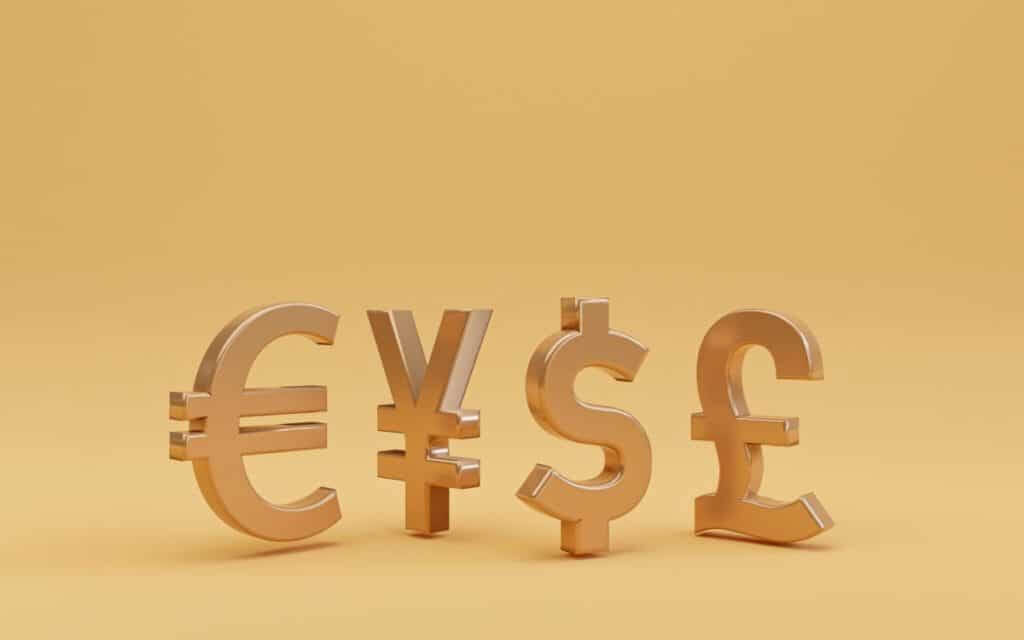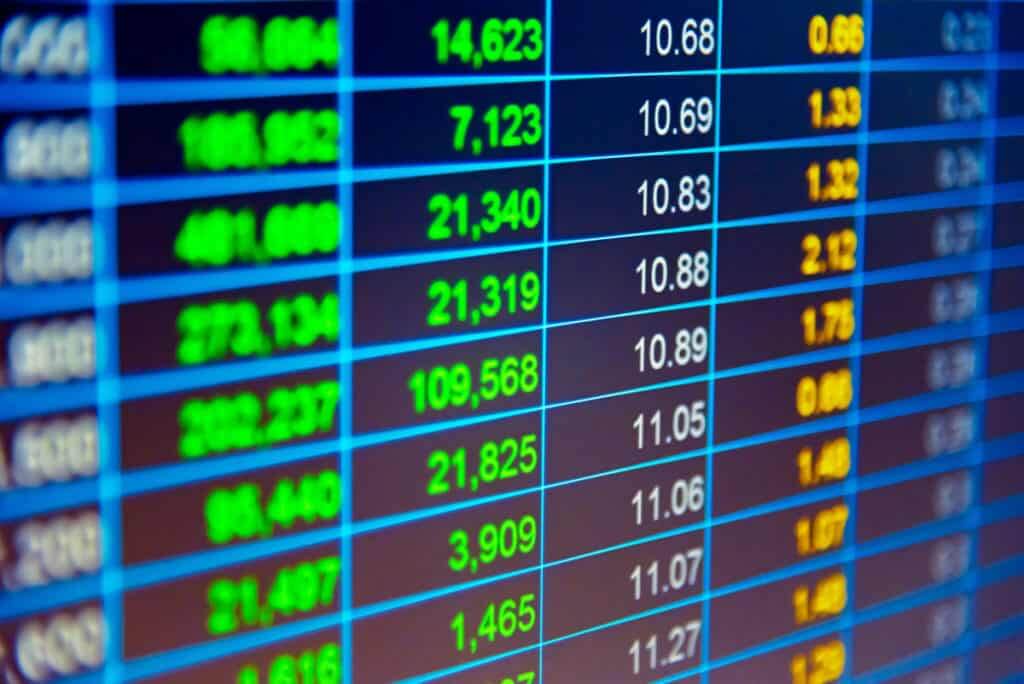Which currencies to trade in 2023 and how to make profits?


Which currencies to trade in 2023 and how to make profits?
Want to start trading Forex in 2023 but need to know which pairs you should trade? And you don’t know either what makes a good currency to trade in Forex? It’s true that with a hundred pairs available, you may be confused regarding the choice of currencies, especially when you are a rookie trader. But don’t worry! We have made a Forex analysis for beginner and intermediate traders to ease their first steps in the Forex market. So if you are wondering which currencies to trade in 2023, the answer is within the following lines.
Which are the best currencies to trade in 2023?
Generally speaking, how can one tell which currencies to trade in Forex for the best profits? The first thing to know is that currencies differ in many ways starting from their volatility, liquidity, trading volumes, and correlation with other currencies and commodity prices. As a rule of thumb, traders mostly go for currencies with high liquidity and high trading volume. The best example is the EUR/USD, one of the most traded Forex currency pairs.
In order to choose the best currency pairs for trading in 2023, you need to grasp three main categories of pairs in the currency market. These are major, minor, and exotic pairs, each being suitable for different trading styles and trader profiles.
The first group encompasses major currency pairs. Major pairs are pairs that measure a currency against the dollar (a pair that contains USD as a quote or base currency). These are the top ten currency pairs that all have high liquidity and trading volumes. They are made of stable currencies, and their prices are easily predictable. Here is the list of majors in the Fx market.
- EUR/USD (Euro-Dollar)
- USD/JPY (Dollar Japanese Yen)
- GBP/USD (Pound Dollar)
- USD/CHF (Swiss Franc Dollar)
- USD/CAD (US Dollar Canadian Dollar)
- AUD/USD (Australian Dollar US Dollar)
- NZD/USD (New Zealand Dollar US Dollar)
Minor currency pairs include currencies such as the Japanese Yen, Euro, or British Pound combined with CHF, CAD, AUD, and NZD. Minor pairs tend to be more volatile compared to major pairs.
Finally, exotic currency pairs represent the combination of one major currency and one currency of a developing economy. These pairs tend to have the highest volatility and therefore are less stable.
For new traders, it’s best to go for major pairs. Of course, you won’t choose ten pairs at a time but up to three pairs and master their market behavior to perfection before going for more volatile ones.
What are the most traded currency pairs?

Not all currency pairs are equal in spread and volume. The spreads practiced by brokers vary according to the currency pairs, and generally, the less the currency pair is traded on the Forex, the higher its spread.
And when it comes to the share of each currency pair in the total of the 4000 billion dollars of daily forex transactions, the inequalities are enormous, and three currency pairs stand out: EUR/USD, USD/JPY, and GBP/USD :
EUR/USD: Around 30-35% of Forex volume
USD/JPY: Around 15-20% of Forex volume
GBP/USD: Around 10-15% of the forex volume
In total, three currency pairs represent approximately 55-70% of forex transactions. And these are really the most interesting currencies to trade, those for which the news is the densest and for which liquidity is bigger.
Apart from these three most traded pairs, all the other pairs represent little more than 5% of the volume of forex transactions, except perhaps sometimes for USD/CHF and AUD/USD.
How to make your currency trading successful in 2023?
No matter which pairs you decide to trade, the thing is, you can only opt for some of the ten majors we enlisted above. You cannot either choose several pairs that are in strong correlation. You should choose up to three pairs for trading and get familiar with their behavior and fundamentals.
Most major currencies’ prices are affected by the prices of commodities such as oil prices, coal, and precious metals. Therefore the commodity prices may be a sign of the direction some currencies’ prices are taking. When it comes to correlation, some pairs are correlated, and some are not. When opting for trading pairs, never go for several correlated pairs. If you lose with one pair, you will likely lose with the other correlated with it. If a pair contains the same currency as a base or quote currency, they are in correlation, such as USD/EUR and GBP/USD.
Furthermore, volatility could be your friend when it comes to trading opportunities. What is a volatile market? Volatility is the measure of the deviation of an asset’s price levels from an average. It is, therefore, a calculation of standard deviation which makes it possible to measure a volatility rate on one or more markets. The higher the volatility rate, the more volatile the market.
How to trade with volatility? Trading leveraged products in a volatile market is one of the ways to make great profits. When trading volatility, it’s advisable to trade on margin. However, leveraged products offer the possibility of making larger profits but also equally large losses.
Also, all currencies are not on the same footing at this level. You can therefore consult the average daily volatility over 2 years of the main currency pairs.
The volatility of the best currencies to trade in 2023

- EUR/USD: 81.5 pips
- USD/JPY: 84.5 pips
- GBP/USD: 95 pips
- USD/CHF: 65 pips
- USD/CAD: 60 pips
- AUD/USD: 79.5 pips
- NZD/USD: 78 pips
EUR/USD
Most volatile times of day: 1-3 p.m.
Most volatile day of the week: Wednesday
Long-Term Volatility Trend: Bearish
USD/JPY
Most volatile times of day: 1-3 p.m.
Most volatile day of the week: Wednesday
Long-Term Volatility Trend: Bullish
GBP/USD
Most volatile times of day: 9-10 a.m. and 1-3 p.m.
Most volatile day of the week: Tuesday
Long-term volatility trend: Neutral
USD/CHF
Most volatile times of day: 1-3 p.m.
Most volatile day of the week: Wednesday
Long-Term Volatility Trend: Bearish
USD/CAD
Most volatile times of day: 1-2 p.m. and 3-4 p.m.
Most volatile day of the week: Thursday
Long-term volatility trend: Neutral
AUD/USD
Most volatile times of day: 2-3 a.m. and 1-3 p.m.
Most volatile day of the week: Wednesday
Long-Term Volatility Trend: Bearish
USD/USD
Most volatile times of day: 1-3 p.m.
Most volatile day of the week: Wednesday
Long-term volatility trend: Neutral
The importance of tech and fundamental analysis

Also, to be profitable in the currency market, traders are called upon to speculate on the statistics relating to supply and demand. To do this, traders must make precise analyzes (charts and fundamentals) of the market. Therefore when trading Forex, constant monitoring of the market prices is necessary, especially if you are a manual trader. In case you use an auto trading tool, the tech analysis is not part of your job.
If you opt for some of the top currencies we suggested above, doing technical analysis is more straightforward. Looking for potential setups of the specific currency pair is necessary for a profitable trade. Monitoring price resistance, pushbacks, and price history should be part of your Forex trading routine. Besides following economic news, central banks’ announcements regarding interest rate policies are also required.
The best currencies for beginners to trade in 2023
As a beginner trader, you should go for the easiest currencies to trade. Again these are the strongest major currencies, such as American Dollar, Euro, and Japanese Yen, but also New Zealand Dollar, Australian Dollar, Sterling, and Swiss Franc.
When it comes to volatile pairs, if you are a beginner, stay away from them until you master the top ten trading currencies. According to analysis, the most volatile currencies in 2023 would be the Turkish Lira, Mexican Peso, and Polish Zloty. Wider swings in their prices are suitable for day trading techniques such as scalping and swing trading.
Forex volatility calculators are available on every trading platform. So once you feel confident enough to switch to volatile currencies, this tool is very helpful.
Which currencies to trade in 2023 – Bottom Line
Each currency we suggested within top performing ones has great potential for profits. What makes them suitable for trading in 2023 is the high volumes and liquidity. Besides, their price stability is vital for consistent profits. Also, their behavior is easy to follow in technical charts showing you when to enter and exit trades. If you don’t find the opportunity in a chart pattern for one pair, then go to the other patterns and see what’s in store. You will certainly find trading opportunities anytime when it comes to top trading currencies.
For intermediate and more seasoned traders, volatile currencies such as the Turkish Lira, Polish Zloty, Mexican Peso, and many others could be great currencies to go with. Besides, no matter if you are rooky or professional, a good technical and fundamental analysis is necessary. Also, don’t pick up a dozen trades per day but limit yourself to two promising trading setups and go with it.
The post Which currencies to trade in 2023 and how to make profits? appeared first on FinanceBrokerage.



